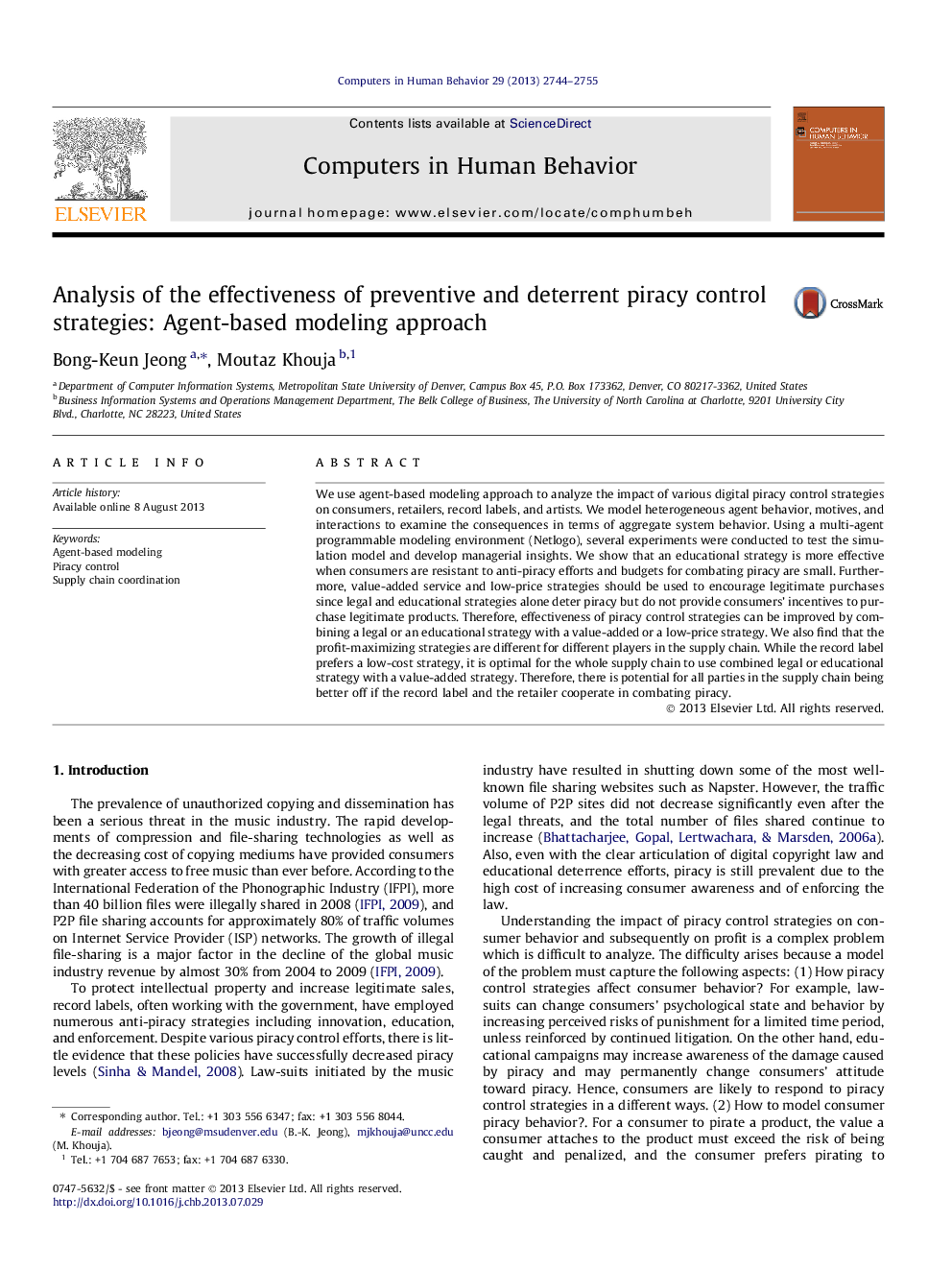| Article ID | Journal | Published Year | Pages | File Type |
|---|---|---|---|---|
| 350873 | Computers in Human Behavior | 2013 | 12 Pages |
Abstract
We use agent-based modeling approach to analyze the impact of various digital piracy control strategies on consumers, retailers, record labels, and artists. We model heterogeneous agent behavior, motives, and interactions to examine the consequences in terms of aggregate system behavior. Using a multi-agent programmable modeling environment (Netlogo), several experiments were conducted to test the simulation model and develop managerial insights. We show that an educational strategy is more effective when consumers are resistant to anti-piracy efforts and budgets for combating piracy are small. Furthermore, value-added service and low-price strategies should be used to encourage legitimate purchases since legal and educational strategies alone deter piracy but do not provide consumers' incentives to purchase legitimate products. Therefore, effectiveness of piracy control strategies can be improved by combining a legal or an educational strategy with a value-added or a low-price strategy. We also find that the profit-maximizing strategies are different for different players in the supply chain. While the record label prefers a low-cost strategy, it is optimal for the whole supply chain to use combined legal or educational strategy with a value-added strategy. Therefore, there is potential for all parties in the supply chain being better off if the record label and the retailer cooperate in combating piracy.
Related Topics
Physical Sciences and Engineering
Computer Science
Computer Science Applications
Authors
Bong-Keun Jeong, Moutaz Khouja,
